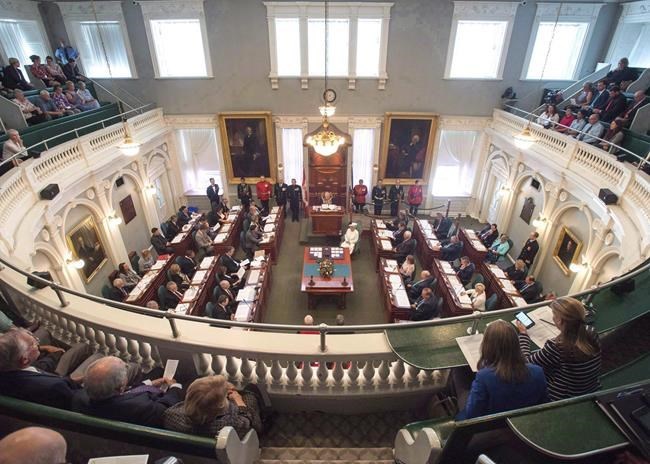
Nova Scotia Lt.-Gov. Arthur LeBlanc delivers the speech from the throne at the legislature in Halifax on Thursday, Sept. 21, 2017. A bill proposing changes to how Nova Scotia's electoral map is drawn will proceed without amendments despite objections from Acadian groups. THE CANADIAN PRESS/Andrew Vaughan
April 12, 2018 - 7:34 AM
HALIFAX - A bill proposing changes to how Nova Scotia's electoral map is drawn will proceed without amendments despite objections from Acadian groups.
The Liberal majority on the legislature's law amendments committee voted Thursday to proceed with the revised House of Assembly Act.
Acadian groups had asked for the removal of a provision that would allow so-called "non-contiguous'" constituencies — ridings that are not connected geographically — and another that would allow a committee to determine the minimum and maximum number of electoral districts.
The Acadian Federation of Nova Scotia is concerned Acadians could potentially be lumped into one riding and wants at minimum the restoration of the former protected ridings of Argyle, Clare and Richmond.
The Liberals say they don't want to restrict the options of an eventual electoral boundaries commission which will look at the province's ridings.
The proposed legislative changes follow a Nova Scotia Court of Appeal ruling released in January 2017 that found a 2012 boundary redrawing that eliminated three Acadian ridings violated the voter rights section of the Charter of Rights and Freedoms.
The province sought the advisory opinion on constitutional grounds following court action by the Acadian federation over the elimination of the protected ridings.
Under the proposed legislation, the number of voters in each district would have to fall within a certain population range of plus or minus 25 per cent of the average.
Exceptions would also be permitted based on geography as well as historical, cultural or linguistic factors, which is expected to give more of a say to black and Acadian minorities in elections.
News from © The Canadian Press, 2018